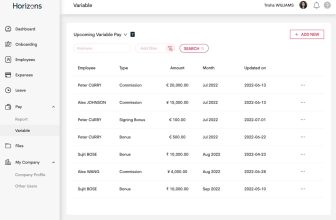What we cover
Key Differences
Contractual Relationships
An Employer of Record (EOR) enters into a legal employer relationship with the workforce, taking on the majority of the liability and responsibility of employment. This includes compliance with local labor laws and handling matters such as immigration. In contrast, staffing agencies act as intermediaries, connecting contract workers with businesses. The staffing agency does not become the legal employer but instead facilitates temporary placements.
Management of Workforce
The management of the workforce differs substantially between EOR services and staffing agencies. An EOR provides comprehensive workforce management services, including payroll, benefits, and tax deductions, treating individuals as their employees. However, the client company retains control over the daily tasks of the employees. Staffing agencies, meanwhile, focus on meeting immediate workforce needs without fully integrating workers into the client’s organizational structure.
Variations in Service Offerings
EORs and staffing agencies present variations in their service offerings. An Employer of Record typically offers a robust array of services tailored to maintain regulatory compliance and employee management. These services can include managing health benefits and other formal employment benefits. On the other hand, staffing agencies primarily concentrate on the recruitment process to supply contract workers to fill short-term or specialized positions, without the overhead of full-time employee benefits or long-standing employment commitments.
Understanding Employer of Record
An Employer of Record is an organization that serves as the legal employer for a worker, while the worker performs services for another company. This entity enters into employment contracts with the worker and takes on responsibility for formal employment tasks. As the legal employer, the EOR manages payroll processing, tax withholding, and ensures adherence to employment laws.
Legal Responsibilities of an EOR
An EOR assumes a range of legal responsibilities tied to employment. Their core duties encompass:
- Payroll Processing: Ensuring accurate and timely compensation for employees.
- Tax Withholding: Managing deductions based on local and national tax regulations.
- Compliance: Adhering to all regional labor laws, employment standards, and workers’ rights.
- Risk Mitigation: Reducing the legal risks for companies by ensuring that the employment arrangements are compliant with laws.
- Employment Contracts: Drafting and maintaining accurate employment contracts that protect both the employee and the company engaging the worker.
Benefits Administration by EOR
Alongside legal responsibilities, the EOR also handles benefits administration. This includes but is not limited to, the following:
- Selection and management of employee benefits packages.
- Liaison with benefits providers to ensure workers receive their entitlements.
- Overseeing benefits enrollment and ensuring the offerings remain compliant with employment laws.
Through these actions, the EOR streamlines the employment relationship, often enhancing risk management and allowing companies to focus on their core operations while maintaining proper legal obligations related to their workforce.
Exploring Staffing Agencies
Staffing agencies streamline the recruitment process by handling job postings and candidate sourcing. Their core function is to identify and attract talent to fill a variety of roles, from temporary positions to permanent placements. Agencies take on the time-consuming tasks of vetting candidates and presenting only those who meet the specific requirements of their clients, ensuring a client-centric approach to recruitment.
Matching and Placement Services
The value of a staffing agency is in its ability to match the right candidate with the right job. Services include:
- Candidate Screening: Thorough assessment of applicants’ skills and qualifications.
- Interview Arrangement: Coordination and scheduling of interviews between candidates and companies.
- Placement: Carefully aligning candidate abilities with job requirements for temporary work, temp-to-hire opportunities, or permanent staffing positions.
Benefits and Flexibility Offered by Staffing Agencies
Staffing agencies are known for their flexibility, offering companies the ability to scale their workforce up or down as needed. Benefits of working with such agencies include:
- Scalability: Rapid adjustments to workforce size in response to business demands.
- Temporary Workers: Provision of short-term staff to cover sudden vacancies, seasonal peaks, or specific projects.
- Reduced HR Load: Allowing companies to outsource the complexities of recruitment and employee management.
Hiring and Onboarding Processes
When companies expand their workforce, they must decide between two distinct approaches for hiring and onboarding: partnering with an Employer of Record (EOR) or using a staffing agency. Both methods differ substantively in how they screen candidates and manage employee onboarding.
Onboarding Procedures with an EOR
An Employer of Record streamlines the onboarding process by taking responsibility for employment tasks on behalf of the company that requires staff. The EOR handles pre-employment checks as well as compliance with employment laws. When onboarding, an EOR ensures that:
- All necessary legal paperwork is completed accurately.
- Employee onboarding materials align with local regulations.
This includes preparing and managing work contracts, tax forms, and benefits enrollment. The EOR also provides ongoing HR support for the workers it employs.
Screening and Hiring Through Staffing Agencies
Staffing agencies, in contrast, focus primarily on the recruitment process, sourcing candidates to match a company’s hiring needs. They typically manage:
- Screening potential candidates to assess skills and fit.
- Conducting pre-employment checks such as background and reference checks.
A staffing agency’s primary role ends once a candidate is placed; they do not usually handle the comprehensive onboarding procedures that an EOR is equipped to provide. The hiring company is responsible for the actual onboarding process after the staffing agency has selected the candidate.
Financial and Legal Considerations
When choosing between an Employer of Record (EOR) and a staffing agency, companies must consider the intricacies of managing payroll and taxes, ensuring proper insurance and workers’ compensation, and maintaining compliance with local and international labor laws. These entities play a critical role in the financial and legal frameworks of employment.
Handling Payroll and Taxes
The Employer of Record assumes the responsibility for all aspects of payroll management. This includes:
- Processing and disbursing salaries to employees
- Withholding the correct amount of payroll taxes
- Filing necessary tax forms such as W-2s or 1099s in the United States
- Handling country-specific tax deductions when employing internationally.
In contrast, a staffing agency typically only processes the payroll for temporary or contract workers, leaving the client responsible for any permanent staff.
Insurance and Workers’ Compensation
Insurance is a fundamental consideration, particularly in relation to workers’ compensation. An EOR will generally:
- Provide workers’ compensation insurance for all of its employees.
- Manage claims and ensure coverage for on-the-job injuries or illnesses.
Staffing agencies may offer similar protections for their contractors, but the client company could be left to manage and fund insurance for direct hires.
Compliance with Labor Laws
Maintaining legal compliance with local and international labor regulations is a nuanced process. Here, the EOR is:
- Accountable for adhering to all relevant labor laws, including hiring, fair wages, and terminations.
- Often well-equipped to navigate compliance matters, especially when expanding into new markets.
Staffing agencies contribute by ensuring the individuals they supply are eligible to work and meet specific job requirements, with the hiring company often responsible for broader compliance once an employee is onboarded.
Operational Aspects
In the realm of workforce management, Employer of Record (EOR) and staffing agencies offer distinct operational solutions. While both assist companies in managing human resources and recruitment, their operational models differ significantly, particularly in the scope of HR functions and technological infrastructure.
Workforce Solutions and HR Functions
EORs deliver comprehensive human resources management, including:
- Payroll processing: Calculation, withholdings, and tax deductions according to employee location.
- Benefits enrollment: Managing health, dental, and retirement plan enrollments for employees.
- HR-related tasks: Overseeing compliance with employment laws and handling employer liabilities.
In contrast, staffing agencies primarily focus on:
- Talent acquisition: They use their extensive networks to source and screen candidates.
- Background screenings: Conducting checks to validate the suitability of potential employees.
- Timesheet management: Ensuring that workers’ hours are accurately recorded and processed.
Infrastructure and Technological Support
EORs must operate with robust HR infrastructure to support their HR services, including:
- Advanced HR platforms: For seamless benefits enrollment, payroll, and compliance tracking.
- Technology for remote work: Supporting geographically diverse employees and clients.
Staffing agencies, on the other hand, leverage infrastructure that’s tailored towards:
- Recruitment technologies: Applicant tracking systems (ATS) and interviewing software to streamline the hiring process.
- Rapid deployment: The capacity to quickly match candidates with job openings and manage short-term placements.
Each entity uses technology and infrastructure to optimize its specific operational domain, with EORs providing an all-encompassing HR management service and staffing agencies specializing in agile workforce solutions.
FAQs
What are the legal implications for companies using an EOR instead of a staffing agency?
Companies using an EOR transfer the legal burden of employment, such as compliance with local labor laws and tax regulations, to the EOR. When using a staffing agency, the company typically remains the official employer and is responsible for legal compliance.
How do the roles of an EOR and staffing agency differ in handling employee salaries and benefits?
An EOR manages payroll, tax withholdings, and the distribution of salaries and benefits directly to employees. Staffing agencies may handle payroll functions but typically do not assume responsibility for benefits administration.
In what scenarios should a business opt for an Employer of Record over a staffing agency?
A business should opt for an Employer of Record when it needs to employ staff in a location where it does not have a registered entity or when it wants to outsource the complexities of legal and payroll compliance, particularly across international borders.
Can an Employer of Record provide the same level of workforce management as a staffing agency?
An Employer of Record can provide extensive workforce management services, especially regarding employment compliance, taxes, and payroll. However, they may not offer the same recruitment and temporary staffing solutions as a staffing agency.
What are the advantages of partnering with an Employer of Record for international employment needs?
Partnering with an EOR offers advantages for international employment such as local legal compliance, reduced administrative burdens, and smooth onboarding for employees in foreign markets without the need for a local entity.








